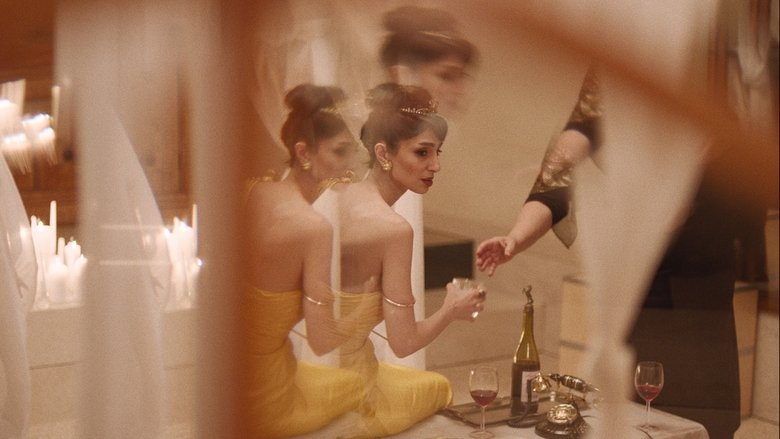The Bitter Tears of Zahra Zand: A Tale of Identity, Loss, and Resilience
Set against the backdrop of 1980s Iran, The Bitter Tears of Zahra Zand is a poignant and visually stunning reimagining of Rainer Werner Fassbinder’s classic The Bitter Tears of Petra von Kant. The film tells the story of Zahra Zand, a legendary Iranian fashion designer who, despite her fame and success, finds herself grappling with the ghosts of her past. As she fights for relevance, identity, and survival in a country that no longer feels like her own, Zahra’s journey becomes a powerful exploration of love, loss, and the enduring human spirit.
The film opens in Zahra’s opulent yet suffocatingly lonely apartment, a space that serves as both her sanctuary and her prison. Once a celebrated figure in the world of fashion, Zahra now finds herself isolated and adrift, her career and personal life in shambles. The revolution and its aftermath have transformed Iran into a place that feels foreign to her, and she struggles to reconcile her identity as an artist with the changing world around her.
Zahra’s story unfolds through a series of intense and emotionally charged encounters with the people in her life. Central to the narrative is her relationship with Leila, a young and ambitious model who becomes both her muse and her tormentor. Leila’s arrival reignites Zahra’s passion for design, but it also forces her to confront the pain and regret that have haunted her for years. Their dynamic is fraught with tension, as Zahra oscillates between admiration and jealousy, love and resentment.
The film delves deep into Zahra’s psyche, exploring the ways in which her past continues to shape her present. Flashbacks reveal key moments in her life—her rise to fame, her tumultuous relationships, and the personal tragedies that have left her emotionally scarred. These glimpses into her history provide context for her current struggles, painting a portrait of a woman who is as complex as she is compelling.
At its core, The Bitter Tears of Zahra Zand is a meditation on identity and belonging. Zahra’s sense of self is deeply tied to her work, and as her relevance in the fashion world wanes, she is forced to confront the question of who she is without it. The film also examines the broader theme of displacement, as Zahra grapples with her place in a country that has undergone profound political and cultural changes. Her struggle to find meaning and purpose in this new reality is both deeply personal and universally resonant.
Visually, the film is a masterpiece, with each frame meticulously composed to reflect Zahra’s inner world. The apartment, with its lavish decor and claustrophobic atmosphere, serves as a metaphor for her isolation and emotional turmoil. The use of color, light, and shadow creates a sense of unease, mirroring Zahra’s fractured state of mind. The costumes, designed with Zahra’s signature flair, are a testament to her artistry and a reminder of the world she has lost.
The performances are equally compelling, with the lead actress delivering a tour de force portrayal of Zahra. Her ability to convey the character’s vulnerability, strength, and complexity is nothing short of mesmerizing. The supporting cast, particularly the actress playing Leila, brings depth and nuance to their roles, creating a dynamic and emotionally charged ensemble.
As the film reaches its climax, Zahra is forced to confront the bitter truths of her life. Her journey is one of self-discovery and redemption, as she learns to let go of the past and embrace the possibility of a new beginning. The resolution is both heartbreaking and hopeful, leaving audiences with a profound sense of catharsis.
The Bitter Tears of Zahra Zand is a powerful and evocative film that reimagines a classic story through a distinctly Iranian lens. It is a tale of love, loss, and resilience, brought to life by stunning visuals, compelling performances, and a deeply emotional narrative. Zahra’s journey is a reminder of the enduring power of art, the complexity of identity, and the strength it takes to confront the ghosts of our past. This is a film that will stay with you long after the credits roll, a testament to the enduring human spirit in the face of adversity.




